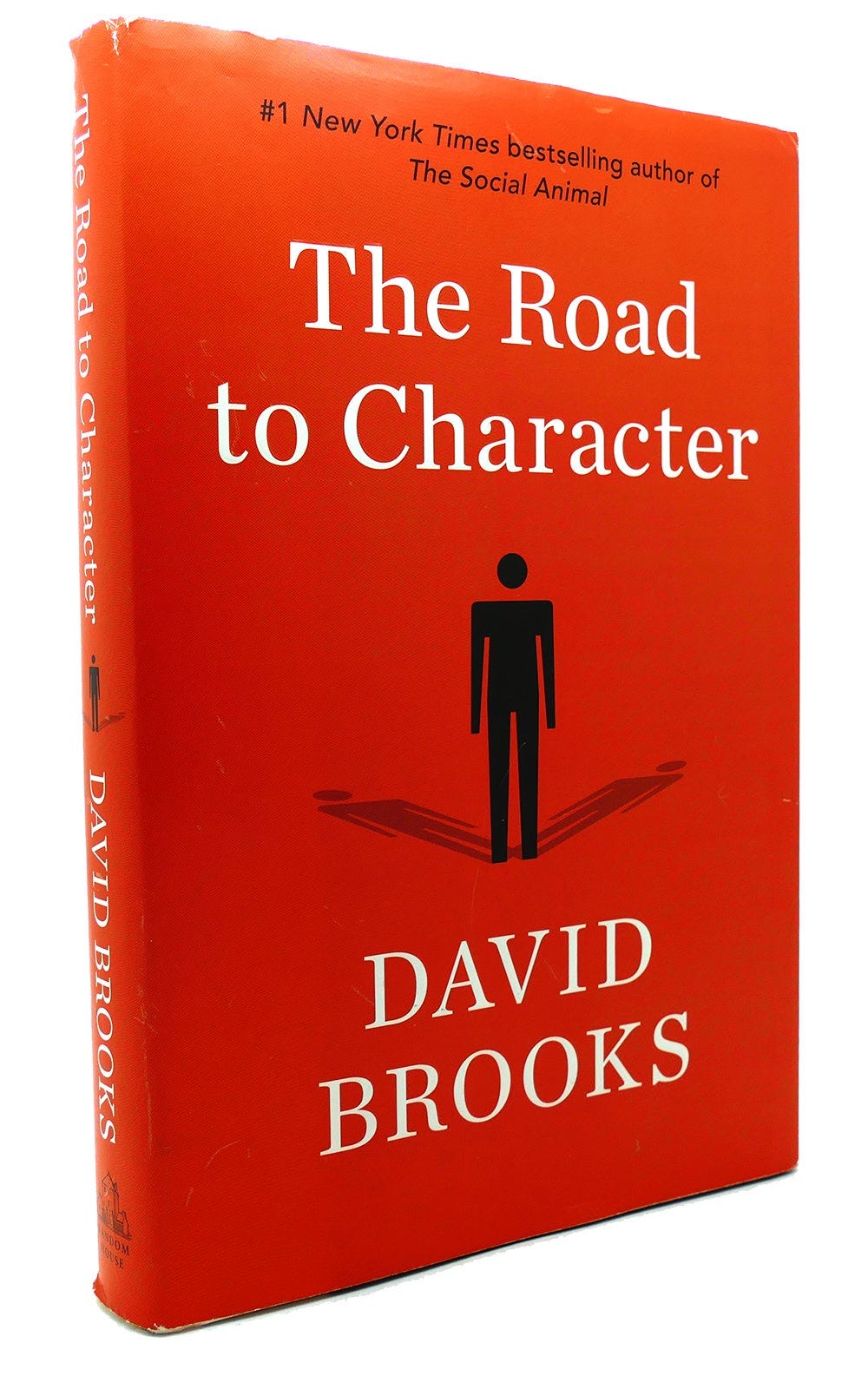As my oldest son approaches his high school career (he’s getting a soft start in the next few weeks as he takes an introductory seminar course), I have thought through books I would like for him to read. For his eighth-grade “graduation”, I bought him William H. McRaven’s Make Your Bed: Little Things That Can Change Your Life... and Maybe the World, Jocko Willink’s Discipline Equals Freedom, and Kent Hughes’ Disciplines of a Godly Man. Each is great in its own way and will help facilitate the qualities I think Owen needs to navigate high school successfully.
I have also been revisiting David Brooks’ The Road to Character. Brooks is the right-leaning pundit who writes for The New York Times and The Atlantic and basically prints money with his nonfiction books. At the heart of The Road to Character is Brooks’ distinction between resume and eulogy virtues. Resume virtues are the things we put on our resumes: our accomplishments, credentials, and accolades. Eulogy virtues are less easily trumpeted: they are the qualities that make us who we are, a man or woman who contributes something of meaning and value to the world.
The premise of this book is that there is a notable dearth of character in contemporary America. We are selfish, morally lazy, and egotistical. Part of the reason for this is the distinction between what can be called the resume virtues and the eulogy virtues. Our culture accommodates the resume virtues—the things that stand out while we apply for jobs—while it has seemingly little time (or notion of what to say, I would argue) about the deeper eulogy virtues. Brooks is not arguing that we should cast aside resume virtues entirely and withdraw from the world, but that we need to put these two competing poles of virtue back in tension with one another. The goal of the book, then, is to emphasize people throughout history who have excelled in the eulogy virtues to act as a counterweight to our near-constant glorification of the resume set.
Brooks’ introduction fleshes out what the distinction between these two ideas of virtue looks like: in large part, it seems to boil down to humility. One statistic is worth noting here. In 1950, responding to a Gallup poll that asked high school seniors "if they considered themselves to be a very important person," 12 percent of the survey population responded in the affirmative. In 2005, that number was 80 percent. This lack of humility manifests itself in the utter narcissism of our culture. Brooks notes that our individual greatness is hammered home into young people through every medium available: television, movies, teachers, parents, broader cultural authorities.
Brooks argues that this turn toward narcissism has prevented us from cultivating the eulogy virtues that our culture so desperately lacks. It prevents this cultivation by convincing us that there is really nothing wrong with us in the first place that requires cultivation to fix. In order to put ourselves on the path of eulogy virtue development, we need to willingly engage in moral struggle and often harsh self-reflection. Brooks quotes the British writer Henry Carlie on the subject: "If we acknowledge that our inclination to sin is part of our natures, and that we will never wholly eradicate it, there is at least something for us to do in our lives that will not in the end seem just futile and absurd." There is a definite paradox lurking in that comment. Our futile and absurd battle over ineradicable sin prevents our lives from being futile and absurd.
Resume virtues can be accomplished; eulogy virtues cannot be accomplished in the same way. We can grow in humility, self-sacrifice, love, obedience, etc., but our grasp of such things is always tenuous, always subject to change and deterioration if we slacken our pursuit. Resume virtues are easier, in a very real sense. You can get an advanced degree and still be a deadbeat (and not even very intelligent). Eulogy virtues demand our whole self. I think it is fairly evident at this point which path conforms most to the Christian faith. As an educator, it is my prayer that I train students to desire, pursue, and fix their eyes upon the resume virtues. In our credentialing culture, we need people who cultivate the inner self.
When I think of my son’s progress through high school, I pray that he comes to value the eulogy virtues over the resume variety. I pray that is what he has seen in me.




Brilliant and spot on Toby!